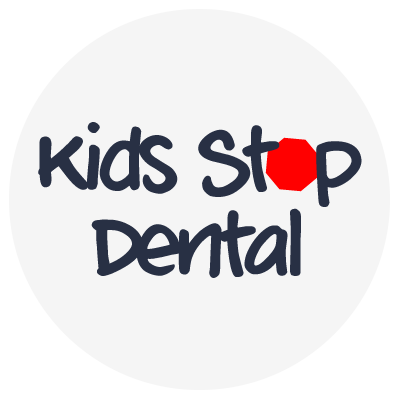Did you know that 43% of children aged 2 to 19 have at least one cavity? A child’s diet has a big impact on the health of their smile. This means it’s essential to teach children proper dental habits at a young age.
Certain foods help to maintain good oral health while others can cause cavities to form. So, how can a parent enhance the health of their child’s teeth?
Read on to learn more about the best and worst foods for kids.
Apples, Carrots, Celery, and Cucumbers
Apples, carrots, celery, and cucumbers are some of the best foods for your teeth. These crunchy and crisp foods help to clean teeth by removing plaque.
Apples also have a high fiber content which can boost saliva flow. Celery is naturally stringy which can work to help floss your teeth.
Most children enjoy one or two snacks a day, in the morning or afternoon. These fruits and veggies make for the perfect healthy snacks for teeth.
Make these snack ideas more appealing to kids by serving apples with a bit of almond butter. Celery, carrots, or cucumbers can go with a low-fat yogurt dip as well.
Melons, Pears, and Strawberries
These fruits contain about 80 to 90% water. This makes them great for boosting oral health and hydration.
Eating fruits like watermelon also offers vitamin C, potassium, and lycopene. These nutrients are great for heart and bone health which are linked to a lower risk of gum disease.
When eating fruits that are higher in sugar, it’s best to brush your child’s teeth afterward. This includes bananas, mangos, raisins, figs, and cherries.
Eggs
Eggs offer a great source of protein, vitamin D, and phosphorus. Having Vitamin D in your diet is important to help the body absorb more calcium. This makes eggs a great choice for supporting healthy and strong teeth.
Eggs are also an easy food to add to your child’s diet. Serve scrambled eggs with cheese for breakfast or egg salad for lunch. Hardboiled eggs even work well as a snack option.
Milk, Yogurt, and Cheese
These dairy options work to help promote stronger and better-protected teeth. They do this by delivering a healthy serving of calcium, vitamin D, and phosphates.
Eating cheese increases saliva production in your mouth. This helps remove food particles that can sit on the teeth to prevent cavities.
Sugar-free greek yogurt contains healthy bacteria. This can help improve gut and oral health by reducing bad bacteria. Frozen yogurt can be a great alternative to ice cream as it has much lower sugar content.
It’s best to avoid giving younger children a bottle of milk in bed. This habit can cause baby bottle tooth decay.
Water
Water is the best drink of choice when it comes to a child’s health. Drinking plenty of water helps to flush toxins and food particles from the mouth. It also keeps your child well-hydrated, resulting in fresher breath.
Water with added fluoride is also important. This nutrient is essential for healthy teeth development.
Around age 3 children can spit out toothpaste when they brush their teeth. This means they can use fluoride toothpaste to further help prevent tooth decay.
It’s important to brush your child’s teeth twice a day. Flossing is also key once your child begins to develop teeth. Noticing that first tooth also means it’s time to schedule your baby’s first dental visit.
Seeds and Nuts
Nuts and seeds provide plenty of protein and healthy fats. They also give the teeth extra minerals that can help to support tooth enamel.
This includes phosphorus and calcium. Highly acidic foods and beverages are known for removing tooth enamel. So eating a balanced diet with seeds and nuts can help prevent this.
Leafy Greens
Greens are full of vitamins, minerals, and nutrients to help protect tooth enamel. They also contain folic acid for reducing inflammation that may lead to gum disease. So, have your children fill up on lettuce, kale, arugula, and spinach.
Candies
Candy is bad food for teeth and gums due to its high sugar content. Hard candies, like lollipops, can lead to cavities. As the child sucks on the candy it produces a coating of sugar over the teeth.
Chewy candies stick to the teeth and wear down enamel. This includes caramels, taffy, jelly beans, and gummies.
These candies get into hard to reach areas of the teeth that can not always be reached with proper brushing. During a pediatric dental exam, the dentist will check to see how much plaque build-up your child has. They will also be able to better clean hidden crevices in the teeth.
Older children may chew sugar-free gum to help enhance saliva. Many sugar-free gum brands contain xylitol. This ingredient helps lessen bacteria in the mouth.
Citrus Fruits
Oranges, lemons, and grapefruits have high acidity, making these foods bad for teeth. Eating too many citrus fruits can wear down tooth enamel.
Starches and Refined Carbohydrates
Most carbs involve foods that are bad for your teeth. This includes cake, baked goods, white bread, and pasta. These refined carbs turn into sugar after being digested.
Potato chips and pretzels are other culprits. These starchy foods stick to the teeth and can cause tooth decay.
It’s best not to have children snack on carbs. This gives them more time between meals for the mouth to build up more saliva and reduce plaque build-up.
Sugary Beverages
Making a habit of drinking sugary beverages can lead to eroded tooth enamel and cavities. This includes sports drinks and fruit juices which often contain added sugars. Carbonated sodas are also loaded with sugar and acid which can damage teeth and gums.
Unsweetened drinks are best, including unsweetened almond or coconut milk. Unsweetened tea contains antioxidants that fight bacteria. Yet, drinking too much tea may cause the teeth to become stained over time.
Avoiding the Worst Foods for Kids to Enhance Oral Health
The worst foods for kids can cause damage to their tooth enamel. This can bring about tooth decay, cavities, and gum disease at a young age. To avoid this, focus on serving your child healthy foods to protect their teeth.
Be sure to also adopt healthy habits at home. This includes brushing and flossing once those first teeth appear.
Regular dental exams are important for routine cleanings. This also allows the dentist to check for any cavities or signs of gum disease. Learn more about how Kids Stop Dental Care can enhance your child’s smile.

